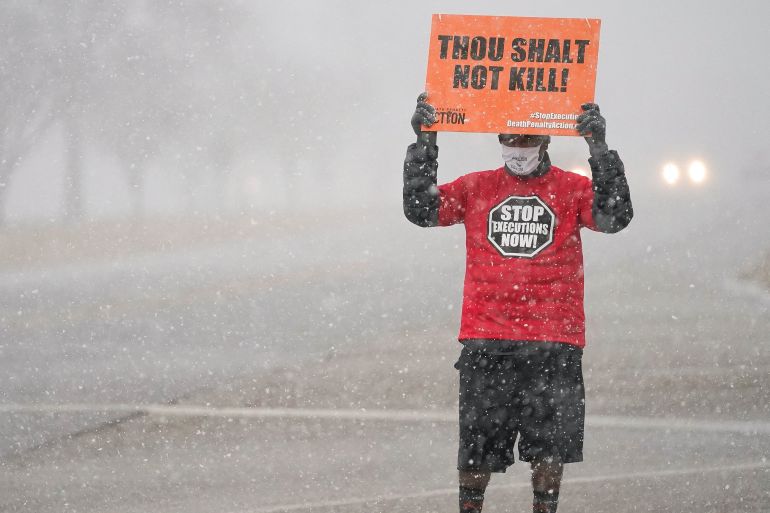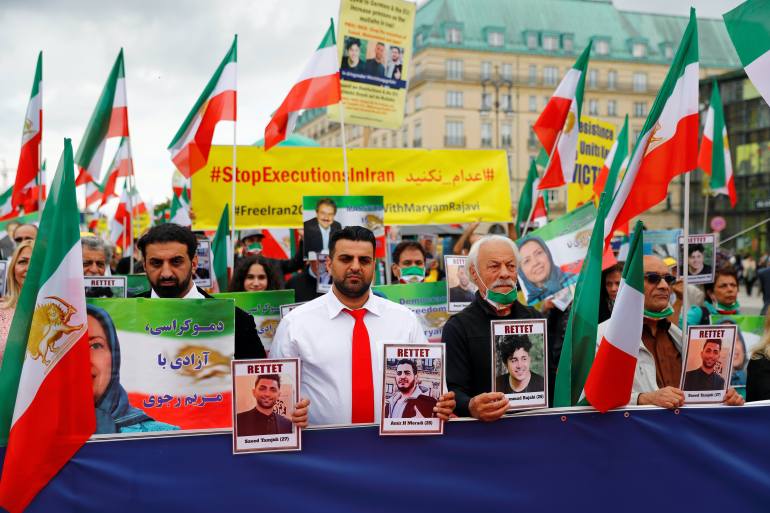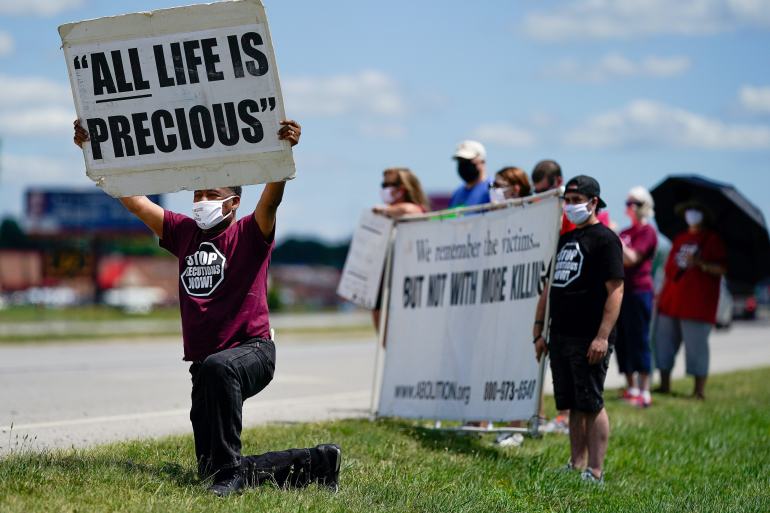Is the world at a ‘tipping point’ to abolish the death penalty?
Twenty-one industry titans from around the world signed a declaration demanding an end to capital punishment, the latest example of business leaders increasingly speaking out about social justice issues.

Business leaders from different sectors and spanning multiple continents are joining forces to call for an end to the death penalty, urging governments to commute death sentences, impose moratoria on executions and support ballot initiatives to end capital punishment for good.
The Business Leaders’ Declaration Against the Death Penalty, unveiled on Thursday by the Responsible Business Initiative for Justice during a South by Southwest Festival virtual event, is a call to action signed by 21 business titans.
Keep reading
list of 4 itemsVirginia first US southern state set to abolish death penalty
Can Biden abolish the death penalty?
Amid death penalty fears, calls grow to free Briton held in India
Led by Virgin Group’s founder Richard Branson, the group has pledged to accelerate the work of anti-capital punishment advocates, activists and lawyers.
Other signatories include Arianna Huffington, founder and CEO of Thrive Global; Anne Wojcicki, CEO of 23andMe; Ben Cohen and Jerry Greenfield, co-founders of Ben & Jerry’s Ice Cream; Mike Novogratz, founder and CEO of Galaxy Investment Partners; and Strive Masiyiwa, founder and executive chairman of Econet Group, among others.
“The death penalty is at a tipping point, both in the United States and globally,” Celia Ouellette, chief executive of the Responsible Business Initiative for Justice, told Al Jazeera.
The commitment from business leaders to utilise their voices and reach to help end capital punishment comes at a time when the private sector and corporations are increasingly speaking out on issues related to human rights and social and racial justice.

“Business leaders are major contributors to the global economy and we need to step up and use our voices to create systemic change,” Merck Mercuriadis, CEO of Hipgnosis Songs Fund, said in a press release announcing the campaign.
The declaration from business leaders also comes at a time when support to abolish the death penalty is growing worldwide.
The United Nations General Assembly adopted a resolution in December on a moratorium on executions with 123 member states voting in favour. That’s an increase from the first time the resolution was proposed in 2007, when only 107 countries voted in favour.
According to Amnesty International, 106 countries had completely abolished capital punishment by the end of 2019. That same year, 657 people were executed globally – the lowest number of executions that Amnesty recorded in at least a decade. But that figure excludes China, Amnesty said, because even though thousands of people were likely executed in China in 2019, the official toll is hard to confirm as the numbers remain classified.

Amnesty reports that China, Iran, Saudi Arabia, Iraq and Egypt carried out the most executions in 2019. Capital punishment methods include beheading, electrocution, hanging, lethal injection and shooting.
In some countries, children under the age of 18 are executed, even though it is a violation of international law.
‘Ugly history’
In addition to ending the practice, abolishing capital punishment is a critical step towards racial and social equality, the declaration emphasises. In many countries, ethnic minorities and the poor are still more likely to be sentenced to death and ultimately executed.
“The death penalty has a long and very ugly history with racial bias in the US,” Ouellette said. “And abroad, it is a very secretive practice. It’s used as a political tool and has a cruel and unjust element that fits very squarely within what businesses are increasingly being called upon to speak out against.”
UN human rights experts recently condemned “the flawed form of punishment which disproportionately impacts African-Americans and people living in poverty”, and called on US President Joe Biden to take action at the federal level after he campaigned on a platform of criminal justice reform.
The administration of former US President Donald Trump carried out 13 executions in the span of a few months following a 17-year hiatus on federal executions. No US president in more than 120 years had overseen as many federal executions.

Attitudes in the US towards the death penalty are changing as well. A recent Gallup poll found that fewer than six in 10 Americans favour capital punishment for convicted murderers – the lowest favourable rating since 1972, when 50 percent of Americans supported the practice.
The tide is also changing at the state level. The governor of Virginia is expected to sign an abolition bill next month after both houses of the state’s general assembly voted to end state capital punishment in February.
If signed into law, it will make Virginia – a state that has executed more people than any other – the first southern US state to abolish the death penalty.
Tipping points are amazing places to be because you can actually change something once and for all.
Ouelette believes the world is at a critical moment for abolishing capital punishment.
“Tipping points are amazing places to be because you can actually change something once and for all, but they’re also quite dangerous in that you can go backwards,” she said.
Ouellette hopes between Thursday’s launch day and October 10 – World Day Against the Death Penalty – more business leaders will sign onto the declaration and “put the final gallon of gas in the tank” to end the death penalty once and for all.
“If a business did something similar to what Coca-Cola did in apartheid South Africa and said, ‘We’re going to pull our investment in this country unless something changes,’ I think that would have a considerable impact,” Ouellette said.